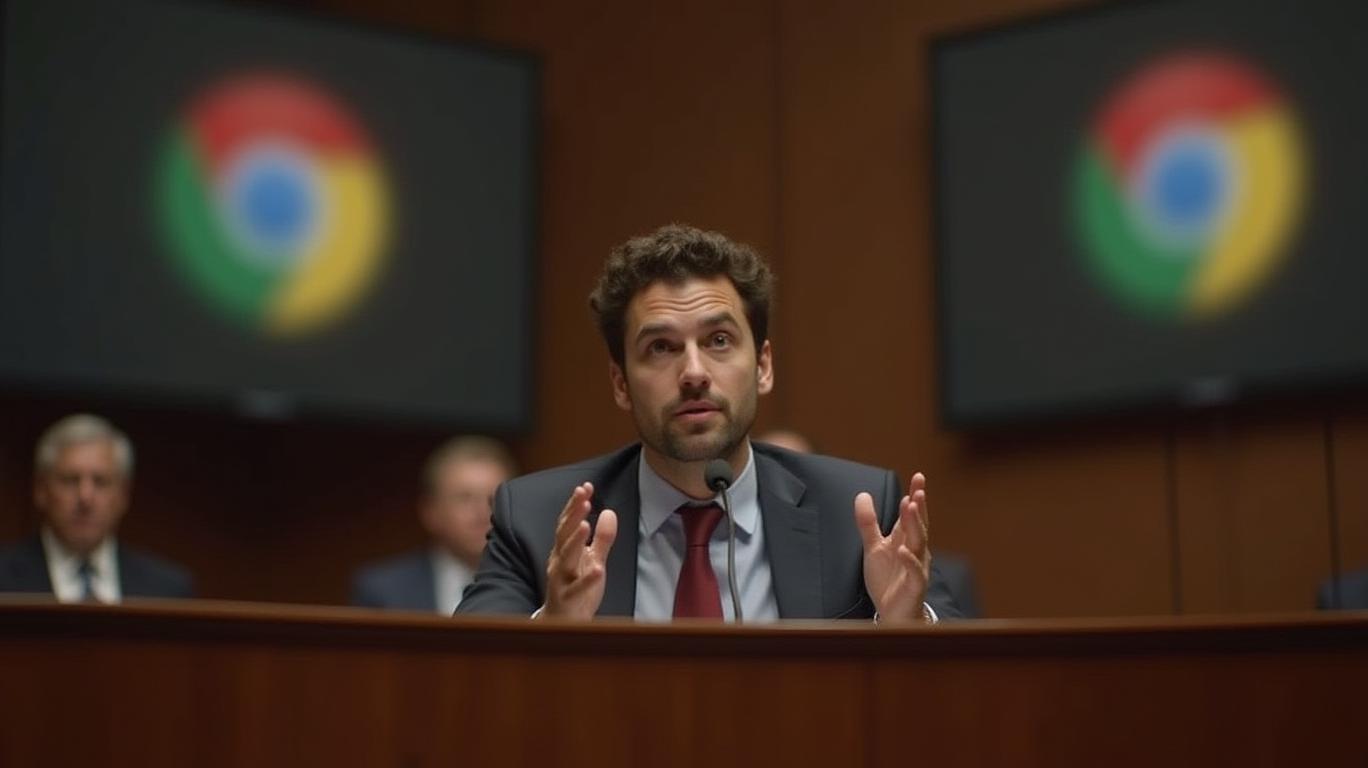DuckDuckGo CEO Values Google Chrome at Over $500 Billion in Antitrust Trial
Google's Chrome browser, a dominant player in the web browsing market, has been a subject of intense scrutiny in the ongoing antitrust trial against the tech giant. During the proceedings on Wednesday, a key competitor, DuckDuckGo, the search engine, made a significant claim. The CEO of DuckDuckGo asserted that the value of GoogleGOOG-- Chrome could potentially exceed $500 billion. This valuation underscores the immense market power and influence that Google Chrome holds in the browser industry.
The assertion by DuckDuckGo's CEO comes at a critical juncture in the antitrust case, where the U.S. Department of Justice is examining whether Google's practices stifle competition and harm consumers. The high valuation of Chrome highlights the potential challenges that could arise if the browser were to be spun off as part of any regulatory settlement or court order. The CEO's comments suggest that finding a suitable buyer for Chrome, given its market dominance and integration with Google's broader ecosystem, would be a daunting task.
The implications of this valuation are far-reaching. If Google were to divest Chrome, it would need to find a buyer capable of maintaining the browser's functionality and user base, which is no small feat. The complexity of Chrome's integration with other Google services, such as search, Gmail, and YouTube, adds another layer of difficulty. Any potential buyer would need to navigate these integrations carefully to avoid disrupting the user experience.
Moreover, the high valuation of Chrome raises questions about the broader impact on the tech industry. If Google is forced to divest Chrome, it could set a precedent for other tech giants facing antitrust scrutiny. The outcome of this case could influence how regulators approach future antitrust cases, potentially leading to more stringent measures to curb the market power of dominant tech companies.
The antitrust trial against Google is part of a broader effort by regulators to address concerns about the concentration of power in the tech industry. The case against Google, which includes allegations of monopolistic practices in search and advertising, is one of several high-profile antitrust cases currently underway. The outcome of these cases could have significant implications for the future of the tech industry, shaping how companies operate and compete in the digital age.

Global insights driving the market strategies of tomorrow.
Latest Articles
Stay ahead of the market.
Get curated U.S. market news, insights and key dates delivered to your inbox.

Comments
No comments yet